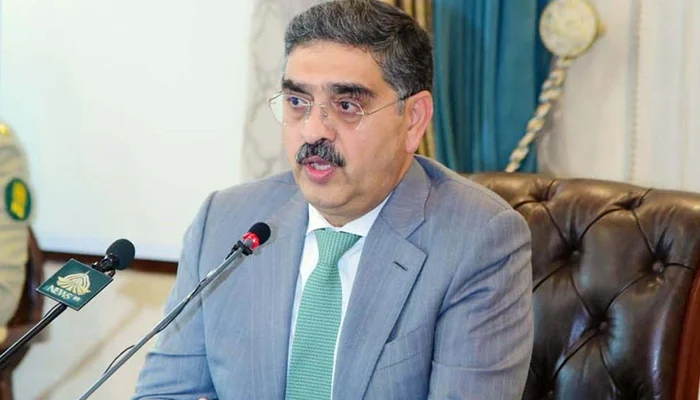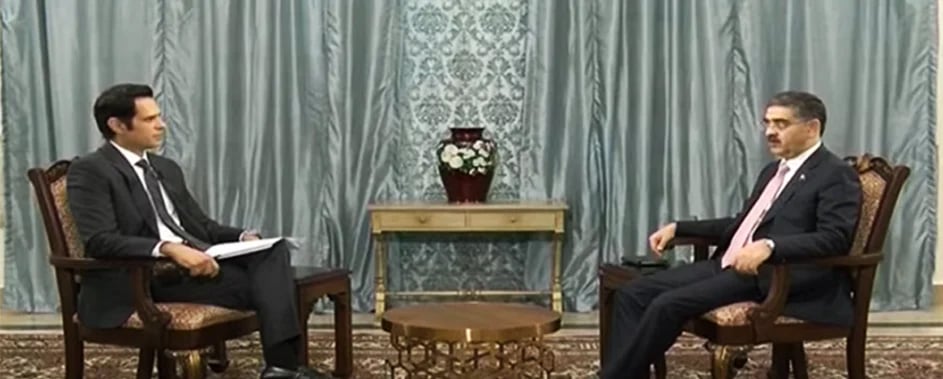Missing Baloch students case: Caretaker PM to skip IHC hearing
"Apart from this, we will ensure our representation in other relevant forums," says Premier Kakar
A day after interim Interior Minister Sarfraz Bugti expressed displeasure over a court’s summon, caretaker Prime Minister Anwaar-ul-Haq Kakar Saturday said he would not be appearing before the Islamabad High Court (IHC) in the missing Baloch students case.
The high court had summoned the prime minister, relevant caretaker ministers, and secretaries for interior and defence, if the more than 50 missing Baloch students were not recovered by Wednesday — the day they were asked to appear before the court.
A single-member bench — headed by Justice Mohsin Akhtar Kayani — passed the orders as per the recommendations of the Baloch Enforced Disappearance Commission.
“I will be abroad due to my participation in the COP 28. Obviously, as the prime minister, there are several commitments. Apart from this, we will ensure our representation in other relevant forums,” he told Geo News’ Shahzad Iqbal.
Caretaker Interior Minister Bugti, in an interview, had voiced his reservations against summoning the prime minister. He claimed that it was “not appropriate if the court began summoning the premier on every other minor issue”.
The prime minister, in today’s interview, also backed Bugti’s statement that the number of missing persons in Pakistan was the “lowest in the region”, claiming that it was “an aspect and a reality”.
It is noteworthy that former prime minister Shehbaz Sharif, had in September last year, also appeared before the same court in a case pertaining to missing persons, where he claimed that he would not give “lame excuses” if the people weren’t recovered.
The Sindh High Court had also, earlier this week, hinted at summoning the interim prime minister if police and provincial authorities could not make any progress in recovery of missing persons.
‘No favourites’
With elections nearing, several political parties have alleged that the caretaker rulers were favouring the Pakistan Muslim League-Nawaz (PML-N) and not providing a level playing field to others.
But Kakar ruled this out, stressing his stance that the caretakers had “no favourities”. He said that there are no restrictions on any party related to electioneering — whether it be the Pakistan Tehreek-e-Insaf (PTI) or the Pakistan Peoples Party (PPP).
“We will ensure transparent elections. Some [parties] also use the ‘victim card’ to woo their voters,” the prime minister said, noting: “There is no bar on PTI when it comes to election-related activities.”
He said that action would be taken on political parties’ “justified complaints”, but at the same time, he noted that there were sporadic instances where authorities had not allowed parties to hold rallies.
Post-elections, when asked how he saw the scenario as there were chances that allegations might be levelled that the polls were not transparent, he said: “Big political parties and relevant stakeholders will have to think about it.”
The prime minister, who was a leader of the Balochistan Awami Party before being appointed to lead the interim government, said he had no intentions of joining any political party for now. “But yes, once this set-up comes to an end, I will definitely think about it.”
In the context of the economy, he said the nation would hear “good news” in the coming weeks as he commended the Special Investment Facilitation Council, claiming that it represented a consistency of policy no matter who is in power.
-
Security forces gun down 30 terrorists in multiple IBOs in KP: ISPR
-
MQM-P calls for new province in Sindh
-
US report validates Pakistan military edge over India: PM
-
Banned TTP poses serious threat to Pakistan security: UNSC panel
-
CM Afridi clarifies remarks on by-poll after ECP requests army deployment
-
Dubai sees 3.2m Pakistani passengers in 2025 as airport sets new milestone
-
Security forces kill 23 Indian proxy terrorists in KP's Kurram
-
Pakistan to construct island to boost oil exploration: report













